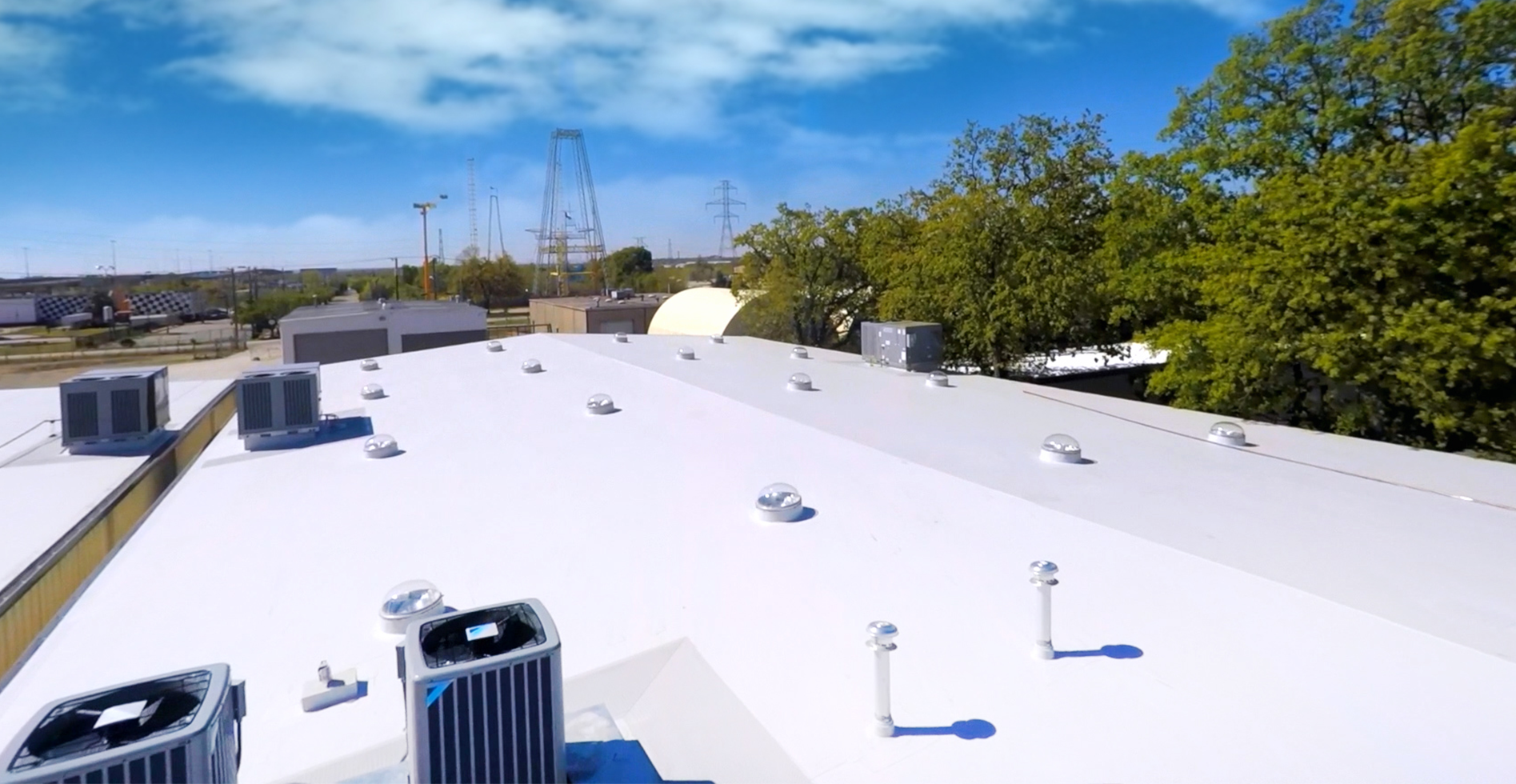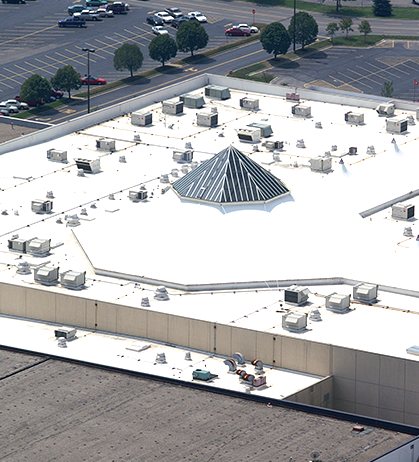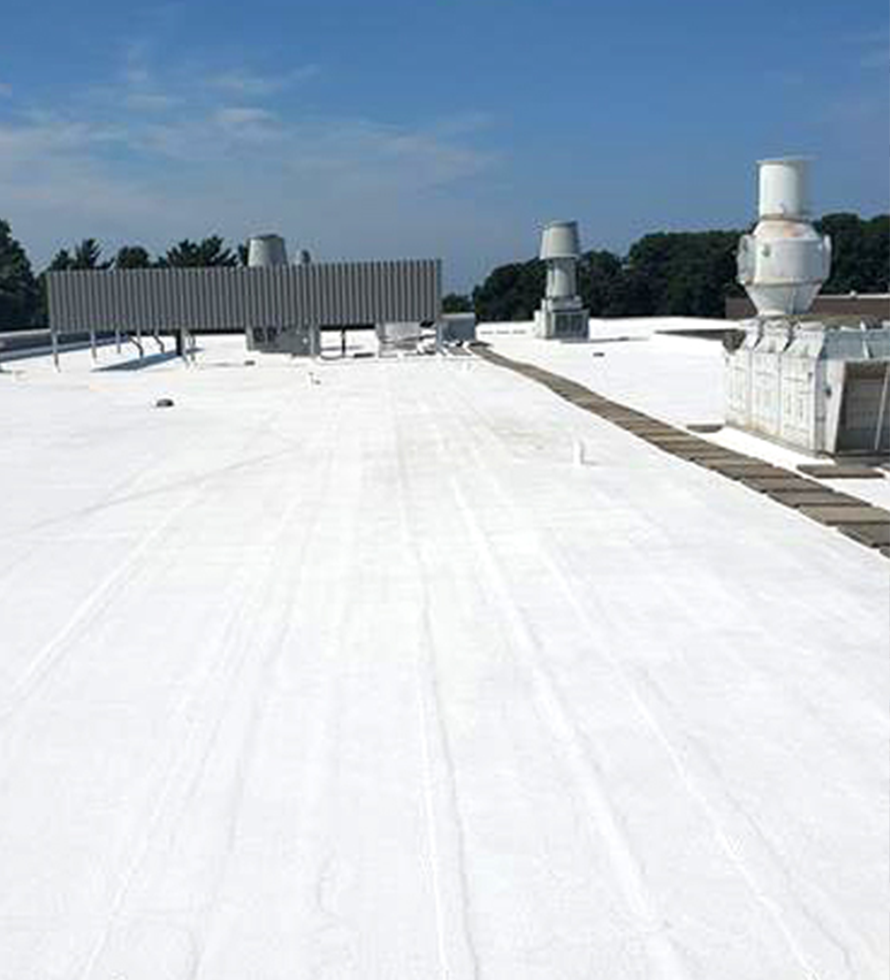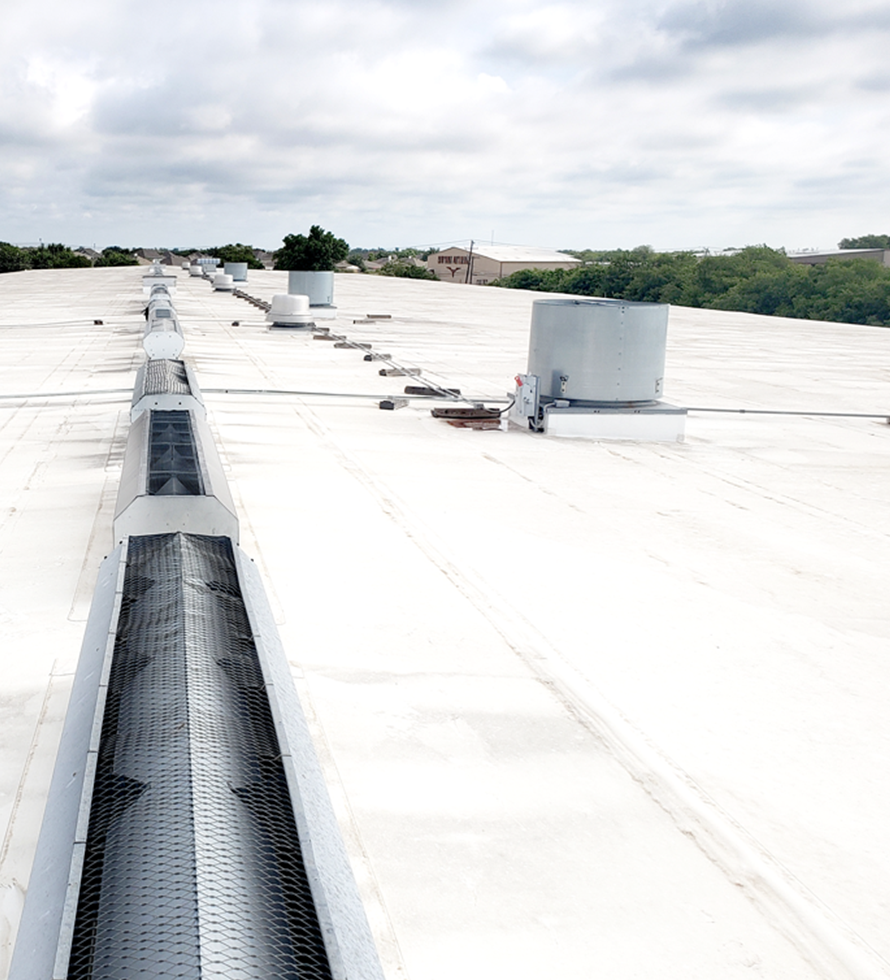What are Thermoplastic Roof Systems?













Lightweight and versatile, these systems can be installed in a wide range of applications and types of buildings. To determine the ideal TPO installation method for your project, let's look at a few factors, including your specific roofing needs, climate and timeline. Below are the methods we offer:


A food processing facility was experiencing active roof leaks that could lead to a potential USDA food safety violation. The food processing facility had a plant shutdown coming up, so the roof needed to be replaced quickly and efficiently. CentiMark stepped in to replace the roof within the time schedule, completing over 100,000 square feet in less than 30 days. The result was a new 60-mil mechanically attached TPO roof, all installed during the plant shutdown.
Before: EPDM ballasted roof
After: 60-mil mechanically attached TPO, over ½” HD isocyanurate
Square Footage: Over 100,000
Warranty: CentiMark Single Source 20-year Warranty covering workmanship and material

New tenants were going to be moving into unoccupied spaces with multiple leaks at Kent Plaza. CentiMark was called in to upgrade the 30 year old roof system, fix the leaks, improve energy efficiency and increase tenant satisfaction. Not only did CentiMark mechanically attach a 1.2” polysio board along with 60 mil of TPO membrane via RhinoBond, but CentiMark also took extra time to blanket several hundred feet of power lines before beginning work. Extreme caution was taken to measure out and mark off the high voltage power supply so those areas were not penetrated with fasteners.
Before: Built-Up roof with gravel
After: Mechanically fastened TPO RhinoBond roof system
Square Footage: 20,000
Warranty: CentiMark Single Source 20-year Warranty covering workmanship and material
Have an existing TPO roof? Great choice! Let's ensure you have everything you need to keep it in its best shape and maximize its useful life. How can our team help you with that?
We are a commercial-only TPO roof installer with over 100 locations from coast to coast. Whether you need a reroof, roof-over, TPO repair or maintenance, our highly-trained crews are just a call away. Our Single Source Warranty covers materials and labor. Interested in a TPO roof system for your building? Contact us for your thermoplastic quote today!
Our team of dedicated roofing professionals is just a message away! Let's evaluate your current roof condition, your needs and building functions and discover the most optimal commercial roofing solution for your needs.